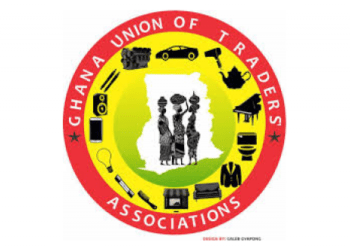The constant deliberation running for most business as they prepare to launch deeper into the prospects of the African Continental Free Trade Area (AfCFTA), is the source of funding and other stimulus packages to boost their operations.
For all intents and purposes, businesses thrive on such financial greasing to aid their smooth operation. Issues such as monetary policies, funding and the dominant ‘stimulus package’; which has become even more relevant in discourse on the impact of the pandemic remains telling of the urgency.
For trade expert, Mr. Karingi, “Boosting intra-African trade can serve as an alternative stimulus package for job creation, foreign exchange, industrial development and economic growth,” will help member countries of the AfCFTA.
If Africa had implemented agreements and frameworks such as the AfCFTA, Pharmaceutical Manufacturing Plan for Africa, the Comprehensive Africa Agriculture Development Programme, and the Accelerated Industrial Development for Africa plan, “our economies would have been more diversified, stronger, and less affected by COVID19″.
Wamkele Mene, the Secretary General of the African Continental Free Trade Area (AfCFTA) Secretariat opined that, many countries in Africa do not have the monetary policy space, the fiscal policy space to provide large bailouts in the trillions of dollars for economic recovery.
“Therefore, for Africa, the stimulus package is the actual AfCFTA, the implementation of this agreement. Increased intra-African trade is what will drive economic development post-COVID-19”.
Wamkele Mene
The long-term posture of the AfCFTA according to him is also the accelerating of Africa’s industrial development as it is very important for “re-configuring our supply chains, establishing regional value chains and boosting the manufacturing of essential value-added products”.
Leaders of businesses in Ghana have also waded in on the conversation by also asking probing question and making demands on funding as well as sustainability seeing the paucity in ample education on the single market trade deal.
The most recent participant has been the President of the Ghana National Chamber of Commerce and Industry (GNCCI), Clement Osei-Amoako, who has tasked government to consider providing a stimulus package for local businesses involved in the African Continental Free Trade Area (AfCFTA).
According to him, the commencement of the AfCFTA means Ghanaian businesses will now have to compete with businesses from other African countries who might have access to credit facilities at lower rates than are currently being offered in the country.
Mr. Osei-Amoako, explains that, a provision of the stimulus package will ensure an enabling business environment which is critical for private sector competitiveness.
“What we seek to do is that, we always look at market opportunities to avail ourselves to it and see where we can reap whatever is there. So, most of the things that we do, hitherto, were just business meetings in other countries to just look for buyers. But with a market of 1.2 billion, there is a lot of potentials.
“So, we need knowledge of the market as to what is going on. Now, we are talking about cost of funds. This is important, but we still need to be competitive that is why we are asking the government to look at giving us some form of stimulus packages to help us”.
Clement Osei-Amoako,
The African Continental Free Trade Area, AfCFTA, which commenced on January 1, 2021, consolidates a market of 1.2 billion people and a combined GDP of $2.5 trillion. Because of the agreement, Africa’s manufacturing output is expected to double to $1 trillion, creating 14 million jobs by 2025.
Indeed, stimulus packages and funding by government for businesses will help in their operation even as they make business-friendly regulations.





















